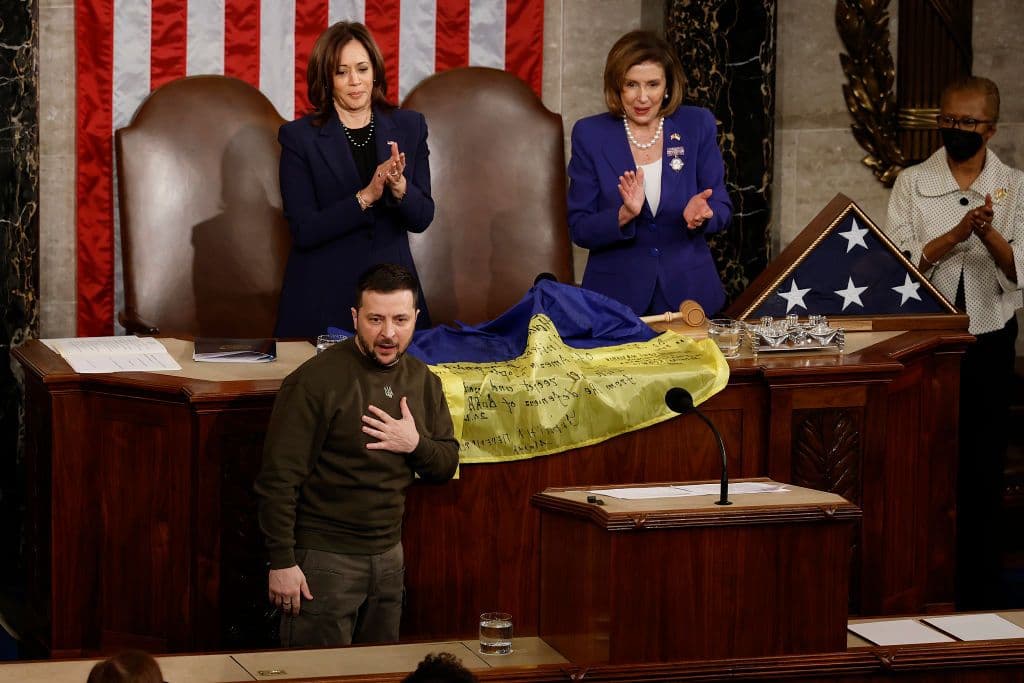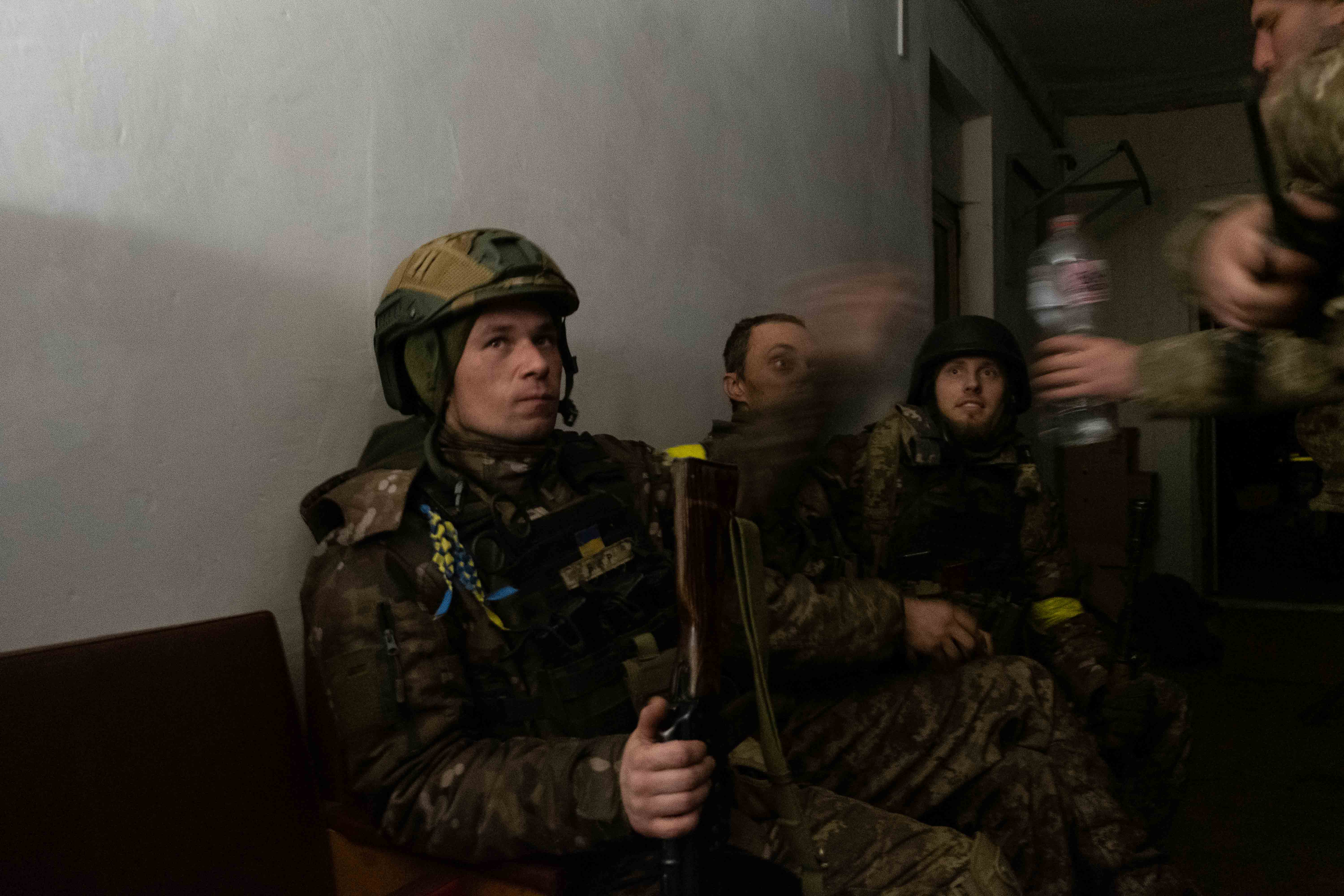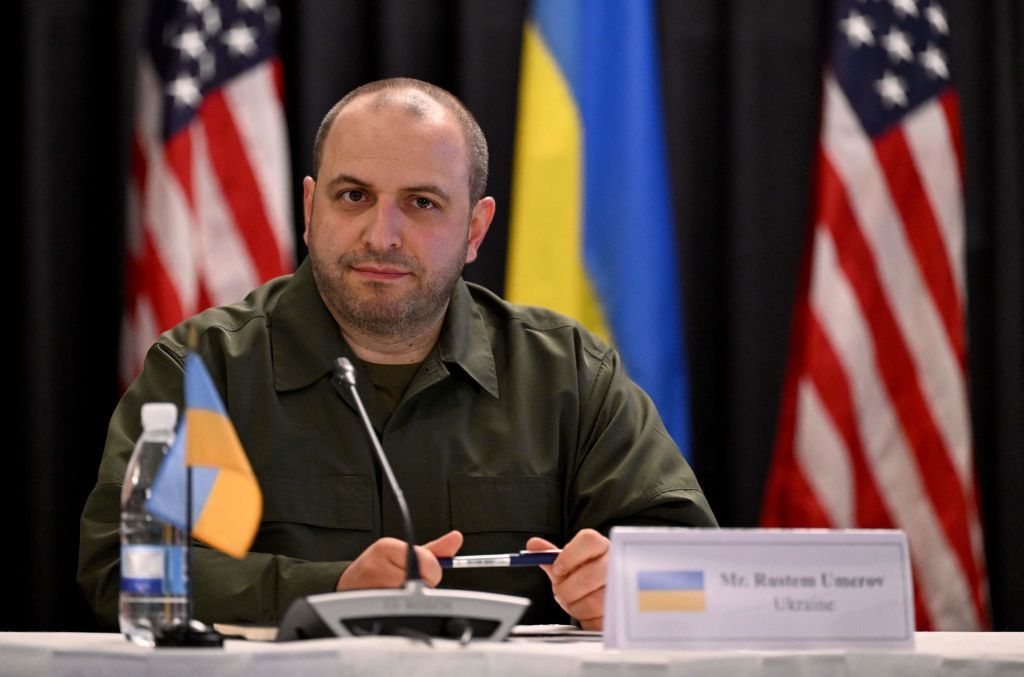US domestic political turmoil threatens to undermine support for Ukraine

The U.S. Senate voted against a $110 billion funding package on Dec. 6 that contained about $61 billion in aid for Ukraine, including close to $50 billion in security assistance, as well as funds for Israel and the Indo-Pacific region.
The 51-49 vote ended up on largely partisan lines, with all Republicans voting against the bill, as well as one independent senator, the former presidential candidate Bernie Sanders (who usually votes together with Democrats).
The bill needed 60 votes to advance. Senate Majority Leader Chuck Schumer changed his vote to no for procedural reasons so that he could bring the measure to the floor again.
Among those who voted against the bill was an outspoken proponent of supporting Ukraine, Republican Senate Minority Leader Mitch McConnell, who ultimately sided with the rest of his party.
The Republican party has increasingly soured on continuing to support Ukraine, often citing economic reasons. However, what ultimately doomed the Dec. 6 vote was the mixing of U.S. aid to Ukraine with other political issues, namely domestic border security and U.S. aid for longtime ally Israel.
Sanders, a left-wing independent who has voted for previous aid packages for Ukraine, voted against the bill because it contained funding for Israel.
In a statement explaining his position, Sanders said that it "would be absolutely irresponsible to provide an additional $10.1 billion in unconditional military aid that will allow the Netanyahu government to continue its current offensive military approach."
Republicans are largely supportive of Israel, but one of the primary reasons they did not vote for the measure was that it did not contain funding for increased border security.

The poison pill
McConnell has expended considerable political energy on trying to convince his fellow Republicans to support Ukraine and has said on numerous occasions that helping Ukraine defeat Russia is in the U.S.'s self-interest.
He has also acknowledged the fact that funding for Ukraine often gets spent in the U.S. in the form of investments in the domestic defense industry.
McConnell reiterated his commitment to Ukraine in a statement on Dec. 6 explaining his vote against the aid bill. He said that he could not support it if it did not address "America’s top national security priorities," namely border security.
House Speaker Mike Johnson, also a Republican, has said that the support of Congressional Republicans on Ukraine aid would depend on the "enactment of transformative change to our nation's border security laws."
A partisan split notwithstanding, there is wide consensus among the American electorate that border security is a "very big problem," which the government is largely failing to address.
Unauthorized crossings at the Mexico-U.S. border in 2022 and 2023 are indeed much higher than in previous years, although the estimated size of the illegal immigrant population has largely remained stable.
Despite this, immigration reform has long been a contentious issue, and there is a lack of bipartisan consensus on how to address it. There is also no reason, per se, why such a controversial and divisive issue should be tied with aid for Ukraine.
The proposed merging of border security measures has put Congressional Democrats who are in favor of continuing aid for Ukraine in a difficult position.
The majority of the Democratic electorate is still supportive of the U.S.'s aid for Ukraine, but other issues, such as immigration, are largely regarded as more important. When paired with the extreme nature of the suggested changes to the border policy, some Congressional Democrats feel they have no choice.
"I'm 100 percent in favor of Ukraine aid, but if they tie (it to) some of these border proposals that they have, I'd vote no," said Democratic Congressman Juan Vargas. "And I think a whole bunch of us would vote no."
President Joe Biden said he was open to "significant compromises" on border security but also condemned Republicans' willingness to "literally kneecap Ukraine on the battlefield and damage our national security in the process."
There is concern among Democrats that Republicans are using the issue of Ukraine aid, which is generally more important to Democrats, to extract untenable concessions on other issues that will end up going against Democratic priorities and ultimately hurt their party at the ballot box next year.
A political weapon
An Ipsos poll released on Nov. 5 found that Russia's full-scale war on Ukraine ranked towards the bottom of very important political issues, lower even than other foreign policy concerns like the Israel-Hamas war.
Despite this, the U.S.'s role in the war has remained a central part of the American political conversation, often used as a political weapon that Republicans wield against their political opponents.
Some libertarian-minded Republican politicians like Senator Rand Paul express their opposition in economic terms, saying that "Ukraine will be yet another endless quagmire funded by the American taxpayer."
At the fourth Republican presidential debate on Dec. 6, candidate and outspoken opponent of Ukraine aid Vivek Ramaswamy attacked his competitor, Governor Nikki Haley, for supporting what he called a "pointless war in Ukraine." He then asked her to name "three provinces in Eastern Ukraine that (Haley and Biden) want to send our troops to actually fight for."
As Haley stood blank-faced, Ramaswamy said: "She has no idea what the hell the names of those provinces are, but she wants to send our sons and daughters in our trimmings and our military equipment to go fight it."
Haley has never said she wants to send U.S. troops to Ukraine, and she also eventually named "Donetsk, Luhansk, and Crimea."
An op-ed by Tom Nichols in The Atlantic on Oct. 2 argued that Republican opposition to aid for Ukraine has mostly nothing to do with a genuine, ideologically-based position regarding the U.S.'s role in the conflict.
Nichols said that it is in large part about the competition between former President Donald Trump and current President Biden. Unfortunately, President Volodymyr Zelensky became entangled in the drama during Trump's first impeachment, which stemmed from Trump threatening to withhold aid for Ukraine unless Zelensky investigated Biden's son, Hunter.
Republican Senator J.D. Vance suggested on Oct. 1 that Democrats only support Ukraine because "they blame Russia for Donald Trump's election, and they'll bleed Ukraine dry for payback."
Nichols argued the opposite, saying that Trump-supporting Republicans are "opposing Ukraine because they hate Ukraine and its president, Volodymyr Zelensky, for their role in the impeachment drama."
As Biden has made his commitment to Ukraine one of the central pieces of his first-term track record, Nichols argued some of his Republican opponents are willing to oppose anything that Biden supports, all in the name of electoral politics.
Regardless of whatever specific strand of the anti-Ukraine argument they find most appealing, Nichols said that Republican opponents to Ukraine "are bound together by the reflexive urge to reject whatever it is that most other Americans accept."
Collateral damage
As the Senate prepared for its vote on the bill, U.S. Treasury Secretary Janet Yellen said on Dec. 5 that the U.S. would be "responsible for Ukraine's defeat" if the funding package is not passed. Biden echoed the sentiment, saying that "the failure to support Ukraine is just absolutely crazy" and "against U.S. interests."
Ukrainian politicians have also acknowledged the risk that a decrease in the U.S.'s support poses for the country's success on the battlefield. Presidential Office head Andriy Yermak said on Dec. 5 that without U.S. military support, Ukraine was at "great risk of losing the war." Yermak, Zelensky, and other Ukrainian politicians have attempted to make the case to the U.S. that a Ukrainian victory would also benefit the U.S.
From a purely geopolitical view, McConnell and other Republicans agree, although they tend to emphasize that a Ukrainian victory would inherently also mean a Russian defeat. This would send a strong signal of deterrence to China, whom many regard as the U.S.'s primary geopolitical foe.
If support for Ukraine becomes tied to Biden and the Democratic party, it runs the risk of turning into a purely partisan issue, in which domestic political concerns overrule other issues.
After the failure of the Dec. 6 vote, supporters of Ukraine are not giving up, but it is unclear what will be able to extricate Ukraine from the broader political turmoil in the U.S.














